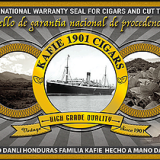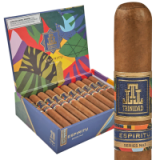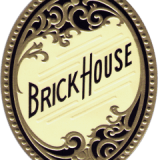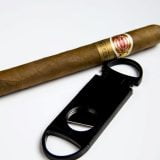When it comes to cigars, many people consider them as a luxurious and expensive hobby. However, there is much more than meets the eye when it comes to cigar smoking. In fact, learning the basics of aging cigars can be an incredibly rewarding experience that can add value to your enjoyment of this popular pastime.
Contents:
Aging cigars involves more than just storing them in humidors or other containers – you must also learn how to properly monitor the environment in which they are kept, as well as understanding the impact that different types of tobacco have on their flavor and aroma. By learning about these aspects of aging cigars, one can become an expert at enjoying this unique hobby for years to come.
Humidity levels are critical for preserving cigars and maintaining their optimal flavor profiles over time. The ideal humidity level for a cigar should be between 68% and 72%. To maintain such a high relative humidity (RH), one must use specialized devices such as hygrometers and humidifiers that measure RH levels and keep them within acceptable ranges. Some aficionados may choose to store their prized smokes in cedar boxes or plastic bags with moisture absorbers in order to keep their stogies fresh over extended periods of time.
The type of tobacco used will also play a role in how well your cigars age over time; different tobaccos provide distinct aromas and flavors that evolve differently when aged correctly. For instance, Maduro wrappers tend to produce bolder notes while Connecticut wrappers offer mellower tones with hints of sweetness after being stored correctly for several months or even years. Experimenting with various types of tobaccos is part of what makes aging cigars so enjoyable; you never know exactly what kind of taste profile you’ll get from each smoke.
Beyond storage techniques and selection criteria lies another aspect – knowing when your cigar is ready for consumption. Depending on the type you have chosen, certain varieties require longer periods before reaching peak flavor complexity while others may need only minimal amounts of age before they’re ready for smoking pleasure. It all depends on personal preference but by taking into account all three key factors – storage environment, tobacco type & duration – any smoker has the potential to create delicious smokes worthy enough even for experienced connoisseurs!
Aging Cigars 101
Cigar aficionados understand the importance of aging cigars. It can make all the difference between a good and an extraordinary cigar. But for beginners, it can be confusing to know how to get started with aging cigars. A basic knowledge of the process is essential before attempting any sort of serious aging program.
The first step in the cigar aging process is proper storage. This requires keeping your cigars in an environment with a temperature between 68-72 degrees Fahrenheit and 70-72 percent relative humidity level. If these conditions are not met, your cigars will dry out and become brittle, making them difficult to smoke properly. Storing your cigars away from direct sunlight is crucial as this could cause them to burn too quickly or impart off flavors that would ruin their taste profile.
When it comes to purchasing aged cigars, there are several things you should consider when selecting a humidor or other cigar storage container such as size and construction material used (cedar wood is preferred). The larger the container, the more space you have for adding additional boxes of sticks down the line – although keep in mind that too much air circulation can cause problems like mold growth or uneven burning if not properly ventilated/humidified on occasion. Never buy pre-aged tobacco products unless they come sealed directly from a reputable vendor who has tested each batch prior to sale; otherwise you run the risk of buying stale product.
Introducing the Aging Process
Introducing the aging process of cigars is a complex task. It requires an understanding of the different aspects that contribute to the overall taste, aroma and character of a cigar. There are several factors that play into this such as humidity, temperature, environment and other elements like oxygen and light exposure. In order for one to properly age their cigars, it is essential to take all these variables into account when making decisions on how long they should be aged or stored.
The first step in aging your cigars is to find a storage area where you can control all of these elements mentioned above. This could be a humidor or any other form of container that maintains consistent temperature and humidity levels over time. When selecting the right storage space for your collection, it’s important to choose one that has proper ventilation since air exchange plays an important role in maintaining freshness and quality over time. Once you have chosen the appropriate storage area for your cigars, you need to ensure that it remains well-maintained by regularly checking its condition so as not to compromise its integrity down the line.
Once you have taken care of creating a suitable environment for storing your cigars, you can then start experimenting with various aging techniques depending on what type of flavor profile you want from them after some period of time has passed. Topping off humidors or even swapping out tobaccos between blends are two popular methods used among aficionados looking to get more out of their smokes than just immediate gratification upon lighting up one straight away.
Understanding Humidity Levels
When it comes to aging cigars, understanding humidity levels is essential. A cigar that’s stored too dry will age quickly and become overly harsh, while one that’s stored too moist can develop mold or mildew. Knowing how to store cigars in the correct environment helps ensure they mature properly over time.
Humidity plays a key role in the flavor of a cigar and its ability to burn evenly when smoked. Cigars should be kept between 68% and 72% relative humidity (RH). Anything above this can lead to spoilage due to excess moisture, while anything below may cause them to dry out and lose flavor. Maintaining this range helps preserve the integrity of the tobacco for an optimal smoking experience as well as preventing combustion issues during use.
Keeping your humidor at the ideal RH level also requires monitoring temperature levels, as higher temperatures can increase the amount of water vapor present in the air inside your humidor, thus increasing overall RH levels beyond what’s desirable for cigar storage. It’s important to find a balance between temperature and humidity so that both are within their recommended ranges for optimum results when aging cigars.
The Right Temperature for Aging
When it comes to aging cigars, temperature is a major factor. Cigars must be stored in an environment with temperatures between 68 and 72 degrees Fahrenheit. If the temperature drops too low, the cigar will not age properly; if the temperature rises too high, the tobacco can become dry and brittle. A humidity level of 65-70% should also be maintained to ensure that the cigars remain fresh while they age.
In order to create an ideal storage environment for aging cigars, many cigar aficionados use humidors or other controlled environments such as climate-controlled cabinets or coolers. These devices help maintain a consistent humidity level and prevent fluctuations in temperature from affecting your precious stogies. Humidors come in all shapes and sizes and can range from simple desktop models to large walk-in units capable of storing thousands of cigars at once.
For those who do not wish to invest in a humidor, there are still ways to effectively store their cigars for aging purposes without sacrificing quality or flavor. Some suggest using tightly sealed containers filled with Spanish cedar wood chips that help absorb excess moisture and keep your stogies at just the right level of humidity while they age gracefully over time.
Evaluating Storage Containers
When it comes to aging cigars, proper storage is a critical factor in their longevity and flavor. For this reason, many cigar aficionados spend significant time researching the best containers for keeping cigars fresh over long periods of time. In order to find the right cigar storage solution, there are several criteria that should be taken into account.
One of the most important considerations when evaluating a container for storing cigars is size. Not only must the humidor have enough space for your current collection, but also room for any future additions you may make. Temperature control within the humidor is key in maintaining an ideal environment and preventing mold or other damage from occurring. Look for one with adjustable thermostats and fans that help regulate humidity levels throughout different seasons or climates.
In addition to these features, ease of use should not be overlooked when selecting a humidor or similar storage device. Humidors come in many shapes and sizes – some are even made out of exotic woods – but what matters most is how easy they are to open and close as well as adjust settings if needed over time. Therefore it’s always wise to read reviews before investing in a particular model so you can get an idea of its usability beforehand.
Monitoring Flavor Changes
Monitoring flavor changes is an important part of aging cigars. As the cigar ages, its flavors and aromas can evolve over time. The best way to keep track of these changes is by tasting your cigars periodically. This will allow you to recognize subtle nuances in taste that may not be present at the beginning of the aging process.
When it comes to monitoring your cigars’ flavors, a journal or notebook can be very useful for recording each tasting session. Keeping track of date, type of cigar, initial flavor notes and any other observations will help you remember how your cigar has changed over time. By having this information on hand, you can make sure that your cigar’s flavor profile is always evolving as desired while also being able to recreate certain tastes in the future if needed.
If you find yourself having trouble distinguishing between different notes when trying to determine a cigar’s evolution, there are many tools available online which provide helpful descriptions for various types of cigars and their accompanying flavors. Attending educational events such as seminars and tastings hosted by experts can help you develop better taste recognition skills so that you can identify more complex flavors when monitoring your aged cigars.
Cigar Selection Tips
Choosing the right cigar for your tastes can be a daunting task. With so many options available, it’s hard to know where to start. Before you make a selection, there are several key factors that should be taken into account when shopping for cigars.
The first thing to consider is the size and shape of the cigar. Cigars come in all shapes and sizes from large robustos to small corona gordas, each with its own unique flavor profile and intensity. If you are looking for a milder smoke, look for something with a smaller ring gauge like a petit corona or lonsdale; if you prefer bolder flavors, opt for larger gauges such as churchill or double toro. Keep in mind that some cigars have special shapes such as figurados which may offer additional complexity due to their tapered heads and foots.
Another factor to take into consideration is the wrapper leaf of the cigar – this is usually the most expensive component of any cigar blend and can greatly affect the overall flavor profile of your smoke. There are five main types of wrappers: Connecticut Shade (mild), Habano (medium-full bodied), Maduro (full-bodied) Corojo (spicy) and Oscuro (very full-bodied). Each type has its own distinct characteristics ranging from sweet floral notes on lighter wrappers to more earthy flavors on darker ones; thus it’s important to pick one based on your personal preference before making your purchase.
Benefits of Aging Cigars
Aging cigars can be a complex and intimidating process for novice aficionados. However, taking the time to learn the basics of this craft can provide cigar enthusiasts with a range of enjoyable benefits. One such benefit is that aging allows one to acquire subtle flavor notes which are otherwise unavailable when smoking a freshly rolled cigar.
The aging process also helps create balance in the flavors present in the cigar. As cigars mature, they become more mellow due to evaporation of harsh tannins and nicotine content – providing an overall smoother smoke. As time passes, oils within the tobacco blend become evenly distributed throughout the length of each stick allowing one to enjoy a consistent draw on every puff.
Aging cigars can help reduce unwanted bitterness while amplifying desirable aromas and tastes present in select tobaccos – including cocoa and coffee notes as well as floral and woody undertones found in certain varieties. This makes it possible for even budget-friendly options to rival pricier blends once properly aged.
Pairing with Drinks
For those looking to enhance their cigar smoking experience, pairing a cigar with the right drink can add an extra level of enjoyment. Beer is often considered the go-to choice for many smokers as it pairs well with almost all cigars. However, there are other options that may provide even more satisfaction. Red wine has become increasingly popular for cigar aficionados due to its complexity and unique flavor profile. The tannins in red wine pair nicely with many full-bodied cigars, such as Maduros and Corojos. For those looking for something a bit lighter, white wines offer a crisp finish that can be refreshing when smoking milder smokes like Connecticuts or Habanos.
Whiskey is another great option for cigar lovers because it has so many different variations and nuances of flavor that can really bring out the best in certain blends. Bourbon is ideal for richer sticks while Scotch works better with light bodied varieties since its smoky taste tends to overpower most cigars’ flavors if not balanced correctly. Rum makes a great accompaniment to medium bodied sticks since its sweet notes help accentuate the tobacco’s flavors without being too overwhelming or cloying.
No matter what type of beverage you choose to pair your cigar with, remember that experimentation is key in finding the perfect combination for your palate. With some trial and error you’ll soon discover which drinks make your smoking session even more enjoyable!











